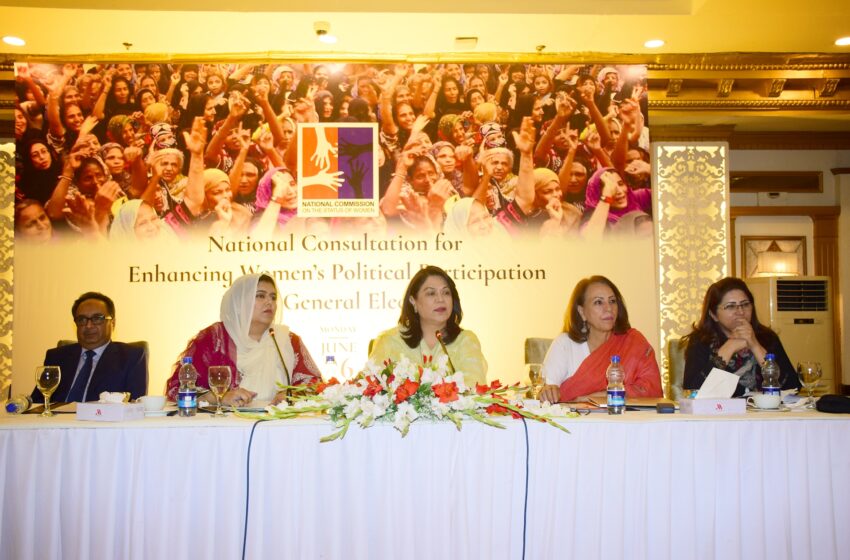Chairperson National Commission on the Status of Women led delegation on SCO Forum

Chairperson National Commission on the Status of Women Ms. Nilofar Bakhtiar led the delegation of Pakistan on the Shanghai Cooperation Organization (SCO) Women’s Forum that was organized at Tashkent, Uzbekistan on 18-19 August 2022. This year the SCO Women’s Forum was inaugurated by the Chairman Senate of Uzbekistan Ms. Tanzila Narbayeva. The Shanghai Cooperation Organization (SCO) is an intergovernmental organization founded in Shanghai on 15 June 2001. The SCO currently comprises eight Member States (China, India, Kazakhstan, Kyrgyzstan, Russia, Pakistan, Tajikistan and Uzbekistan), four Observer States interested in acceding to full membership and six “Dialogue Partners”. This year the forum was organized to discuss the pressing issues of ensuring gender equality; to promote the interaction of SCO countries in the development and implementation of effective measures in the field of gender equality, empowering women, stimulating their role in the implementation of the Sustainable Development Goals (SDGs). Heads of state organizations of the SCO member states, governments’ women machineries from all SCO countries, political and public figures, representatives of civil society, international organizations, diplomatic corps, as well as national and foreign media attended the forum. In her address at the forum, Ms. Nilofar Bakhtiar thanked and acknowledged the efforts of the Honorable Parliamentarians of Uzbekistan in hosting this event. She said that they were all gathered to support each other by sharing the experiences and the strategies adopted for attaining the common goal for women’s social and economic development. She said that Pakistan is a country with huge cultural diversity yet having a loving and supportive social environment. Chairperson added that like every other country of the region we were facing hurdles in creating a gender balanced society, but we are confident that women’s development agenda is now part of human rights agenda of the government. Our policy planners are recognizing women as essential team members. Soon we will reach a stage where women will be seen as equally important player for national development. She said that after decades of efforts, women are now enjoying a better position and have better opportunities for health, education and political participation. The political participation of women has covered many miles but still we have a long way to go. The rapidly emerging information technology has also opened a new window for their economic development. She further shared some facts about National Commission on the Status of Women (NCSW) which was established by a presidential ordinance in 2000 and it was given financial and administrative autonomy through NCSW Act, 2012. It was an outcome of the national and international commitments of the Government of Pakistan such as the Beijing Declaration and the Platform for Action, 1995; and the National Plan of Action (NPA) for Women, 1998. Chairperson explained that NCSW’s most successful strategy has been of working in partnership with civil society networks and organizations, with government departments, universities, bilateral and multilateral donors, and parliamentarians – mostly women members of assemblies. While institutional priorities of NCSW are to enhance provincial coordination; identifying shortcomings in laws related to honor killings; to raise awareness of the public and law enforcement agencies about existing laws and accessing them; to take appropriate measures to ensure disaggregated data collection, on all forms, of violence against women including domestic violence; advocating universal education for girls; women’s 33% quotas in elected/non-elected decision making bodies in all provinces, administrative units and the judiciary at all levels as well as conducting a revision of the curriculum and textbooks for better security of girls in educational institutions. While concluding, Chairperson stated that in the context of decision making and political participation they had long engagements with Election Commission of Pakistan and they remained very supportive to the Electoral Reforms Process, Sensitizing & Training of Media for election reporting, women’s electoral registration campaigns, the process of Election Observation and in depth research on voting patterns. In the joint declaration, the participants of the forum emphasized upon the importance of women’s cooperation in strengthening public diplomacy and growing importance of gender interaction in deepening friendly, mutually beneficial and equal relations between the SCO member states in achieving sustainable development goals. It was stressed to further promote the ever-increasing role of women in strengthening public architecture, the system of state administration, as well as in solving problems in the field of security, environmental protection, and economic, social, scientific, technical, cultural and humanitarian spheres.


